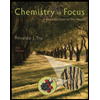When you jog, most of the food energy you burn above your basal metabolic rate (BMR) ends up as internal energy that would raise your body temperature if it were not eliminated. The evaporation of perspiration is the primary mechanism for eliminating this energy. Determine the amount of water you lose to evaporation when running for 42 minutes at a rate that uses 400 kcal/h above your BMR. (That amount is often considered to be the "maximum fat-burning" energy output. The latent heat of vaporization of water at room temperature is 2.5 106 J/kg.) kg The metabolism of 1 gram of fat generates approximately 8.89 kcal of energy and produces approximately 1 gram of water. (The hydrogen atoms in the fat molecule are transferred to oxygen to form water.) What fraction of your need for water will be provided by fat metabolism? %
When you jog, most of the food energy you burn above your basal metabolic rate (BMR) ends up as internal energy that would raise your body temperature if it were not eliminated. The evaporation of perspiration is the primary mechanism for eliminating this energy. Determine the amount of water you lose to evaporation when running for 42 minutes at a rate that uses 400 kcal/h above your BMR. (That amount is often considered to be the "maximum fat-burning" energy output. The latent heat of vaporization of water at room temperature is 2.5 106 J/kg.) kg The metabolism of 1 gram of fat generates approximately 8.89 kcal of energy and produces approximately 1 gram of water. (The hydrogen atoms in the fat molecule are transferred to oxygen to form water.) What fraction of your need for water will be provided by fat metabolism? %
Chemistry & Chemical Reactivity
10th Edition
ISBN:9781337399074
Author:John C. Kotz, Paul M. Treichel, John Townsend, David Treichel
Publisher:John C. Kotz, Paul M. Treichel, John Townsend, David Treichel
Chapter24: Biochemistry
Section: Chapter Questions
Problem 34GQ: The first step of the metabolic process known as glycolysis is the conversion of glucose to glucose-...
Related questions
Question
When you jog, most of the food energy you burn above your basal metabolic rate (BMR) ends up as internal energy that would raise your body temperature if it were not eliminated. The evaporation of perspiration is the primary mechanism for eliminating this energy. Determine the amount of water you lose to evaporation when running for 42 minutes at a rate that uses 400 kcal/h above your BMR. (That amount is often considered to be the "maximum fat-burning" energy output. The latent heat of vaporization of water at room temperature is 2.5 106 J/kg.)
kg
The metabolism of 1 gram of fat generates approximately 8.89 kcal of energy and produces approximately 1 gram of water. (The hydrogen atoms in the fat molecule are transferred to oxygen to form water.) What fraction of your need for water will be provided by fat metabolism?
%

Transcribed Image Text:When you jog, most of the food energy you burn above your basal metabolic rate (BMR) ends up as internal energy that would raise your body temperature if it were not eliminated. The evaporation of
perspiration is the primary mechanism for eliminating this energy. Determine the amount of water you lose to evaporation when running for 42 minutes at a rate that uses 400 kcal/h above your BMR.
(That amount is often considered to be the "maximum fat-burning" energy output. The latent heat of vaporization of water at room temperature is 2.5 x 106 J/kg.)
kg
The metabolism of 1 gram of fat generates approximately 8.89 kcal of energy and produces approximately 1 gram of water. (The hydrogen atoms in the fat molecule are transferred to oxygen to form
water.) What fraction of your need for water will be provided by fat metabolism?
%
Need Help?
Read It
Expert Solution
This question has been solved!
Explore an expertly crafted, step-by-step solution for a thorough understanding of key concepts.
This is a popular solution!
Trending now
This is a popular solution!
Step by step
Solved in 4 steps

Knowledge Booster
Learn more about
Need a deep-dive on the concept behind this application? Look no further. Learn more about this topic, chemistry and related others by exploring similar questions and additional content below.Recommended textbooks for you

Chemistry & Chemical Reactivity
Chemistry
ISBN:
9781337399074
Author:
John C. Kotz, Paul M. Treichel, John Townsend, David Treichel
Publisher:
Cengage Learning

Chemistry & Chemical Reactivity
Chemistry
ISBN:
9781133949640
Author:
John C. Kotz, Paul M. Treichel, John Townsend, David Treichel
Publisher:
Cengage Learning

Chemistry: Principles and Reactions
Chemistry
ISBN:
9781305079373
Author:
William L. Masterton, Cecile N. Hurley
Publisher:
Cengage Learning

Chemistry & Chemical Reactivity
Chemistry
ISBN:
9781337399074
Author:
John C. Kotz, Paul M. Treichel, John Townsend, David Treichel
Publisher:
Cengage Learning

Chemistry & Chemical Reactivity
Chemistry
ISBN:
9781133949640
Author:
John C. Kotz, Paul M. Treichel, John Townsend, David Treichel
Publisher:
Cengage Learning

Chemistry: Principles and Reactions
Chemistry
ISBN:
9781305079373
Author:
William L. Masterton, Cecile N. Hurley
Publisher:
Cengage Learning

Chemistry: The Molecular Science
Chemistry
ISBN:
9781285199047
Author:
John W. Moore, Conrad L. Stanitski
Publisher:
Cengage Learning

Chemistry In Focus
Chemistry
ISBN:
9781305084476
Author:
Tro, Nivaldo J., Neu, Don.
Publisher:
Cengage Learning

Chemistry for Engineering Students
Chemistry
ISBN:
9781285199023
Author:
Lawrence S. Brown, Tom Holme
Publisher:
Cengage Learning